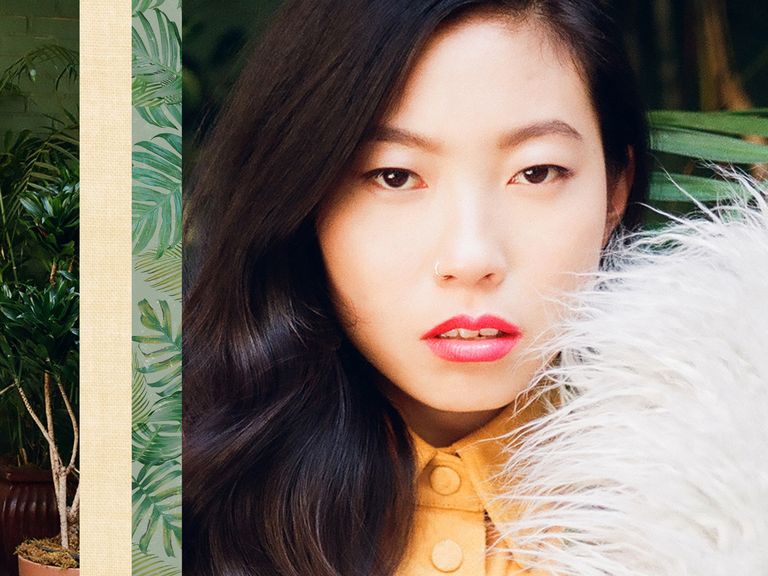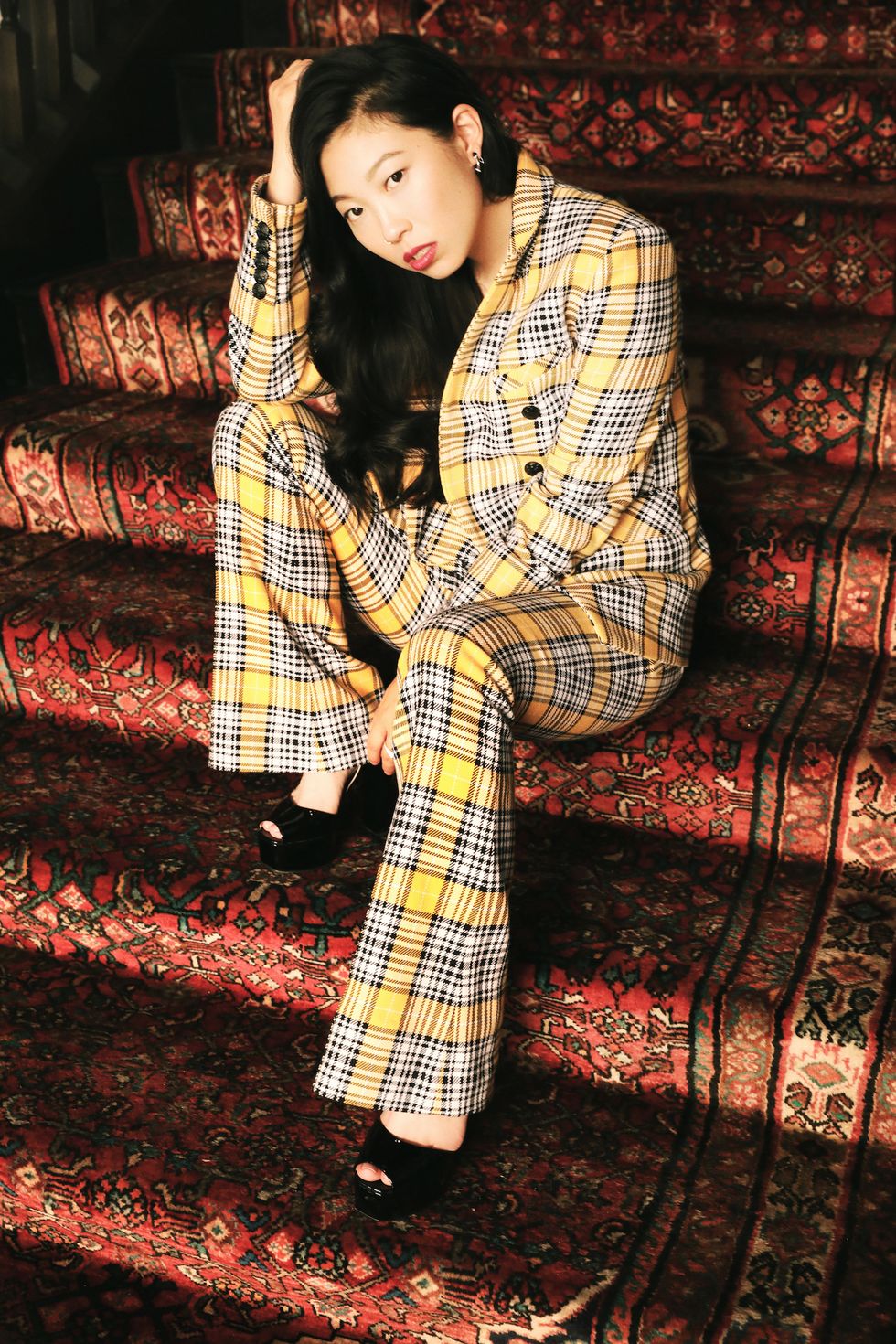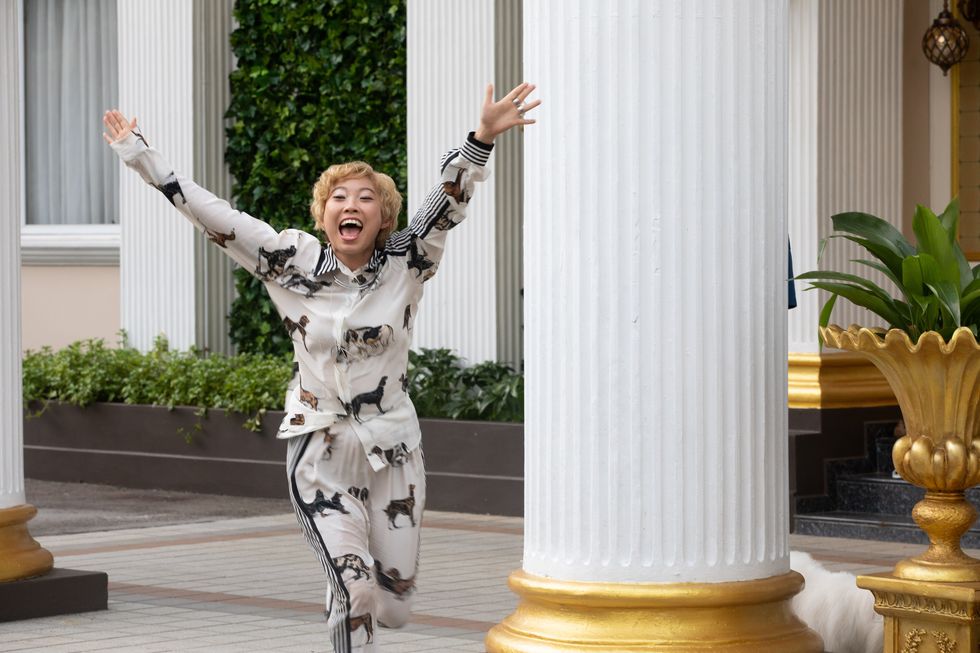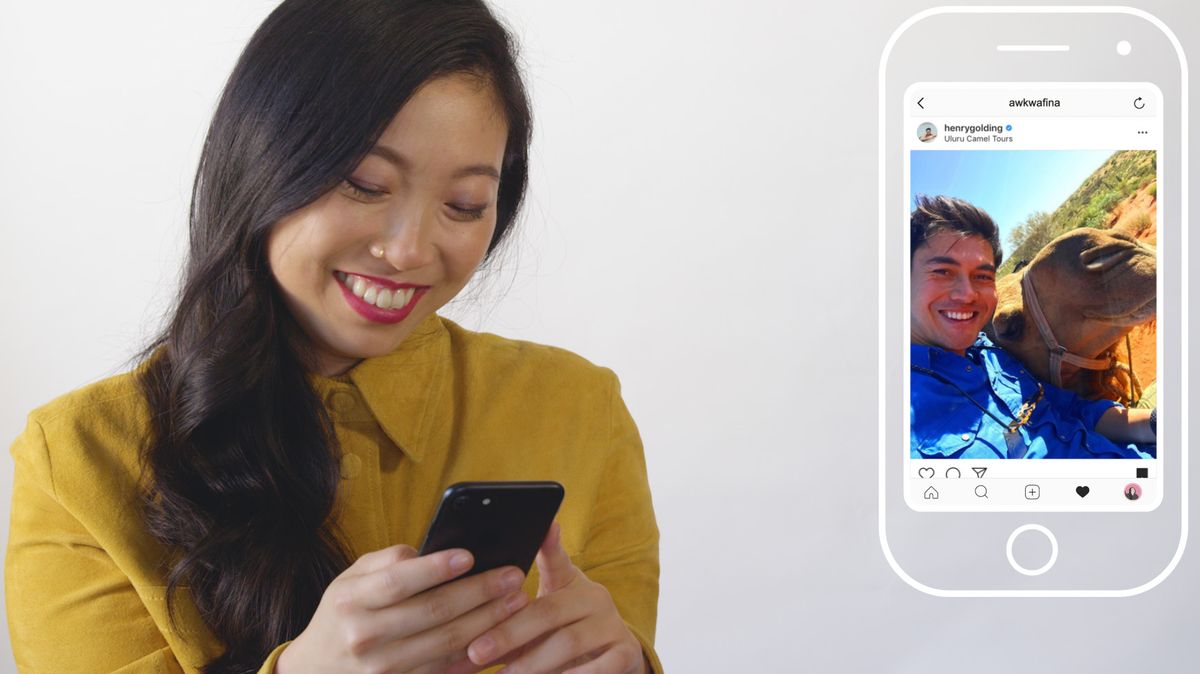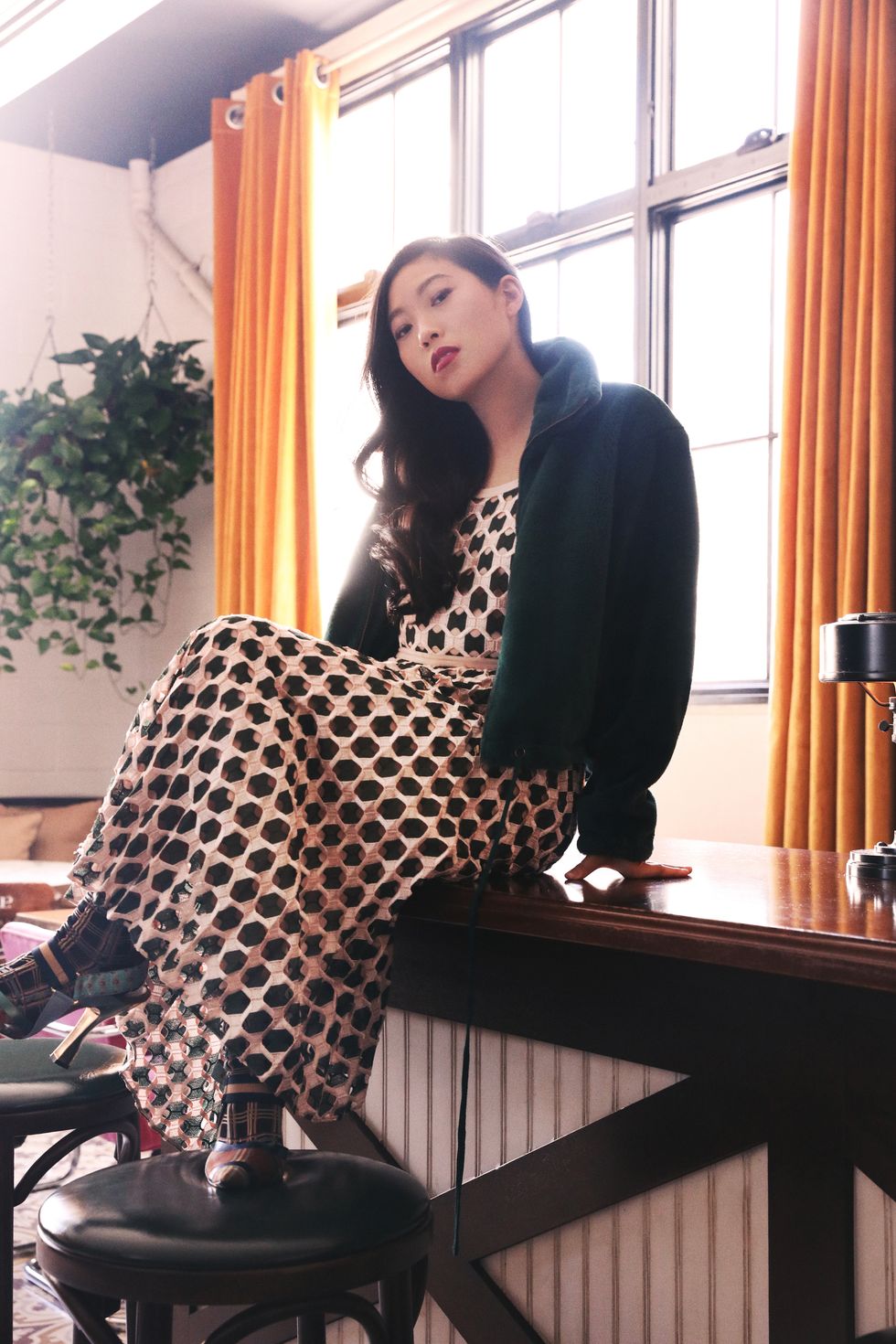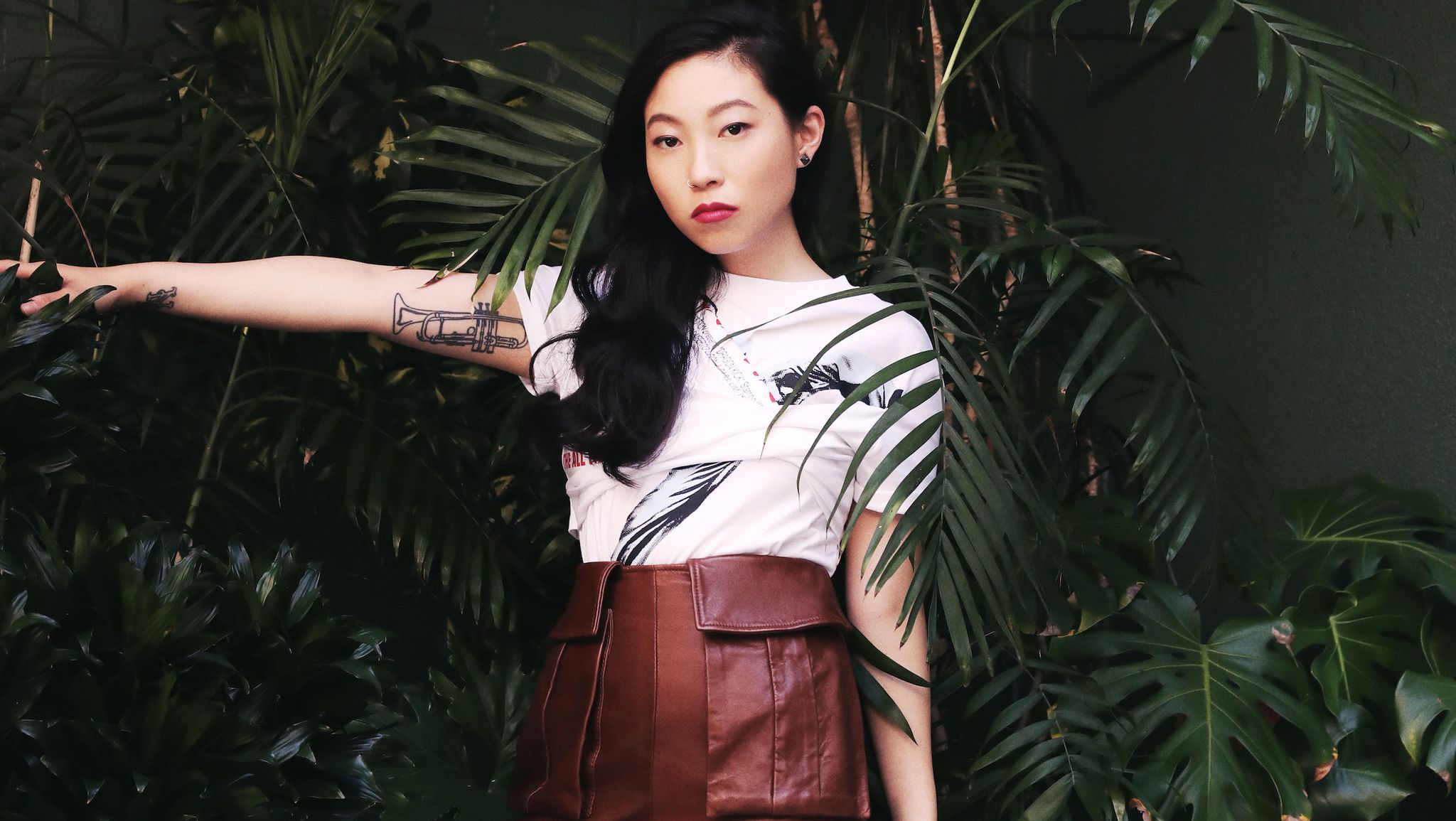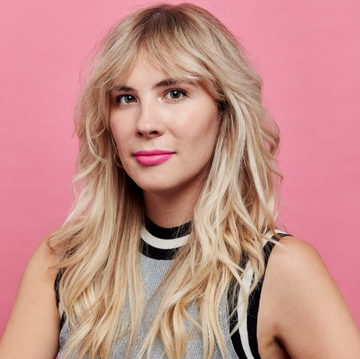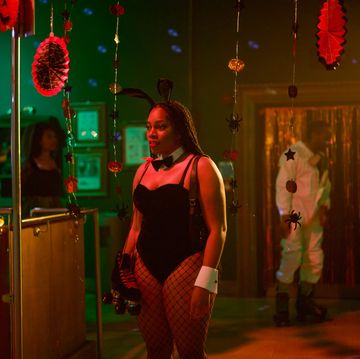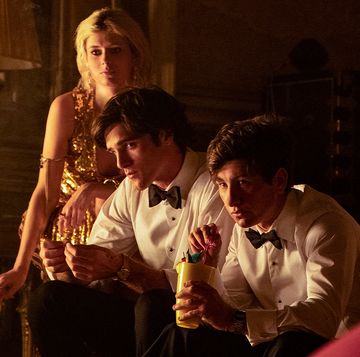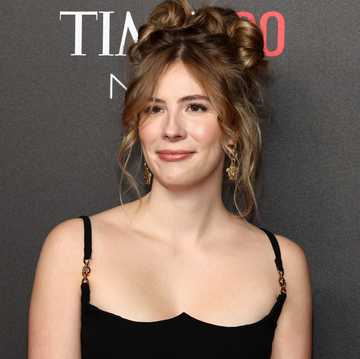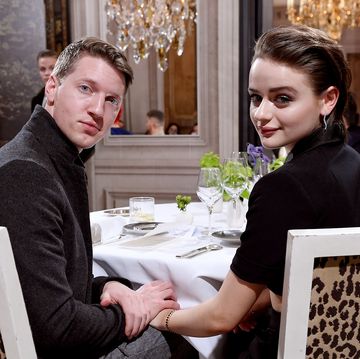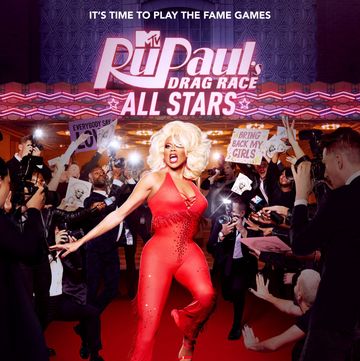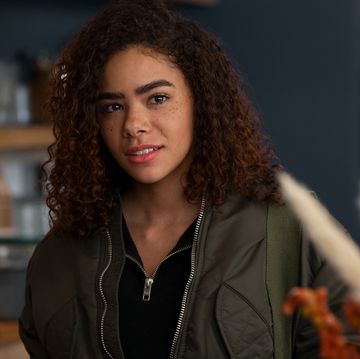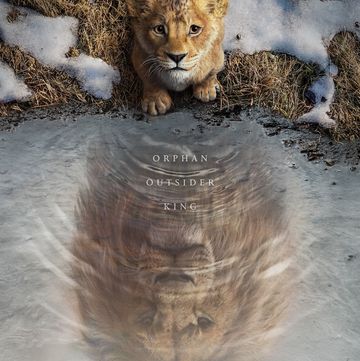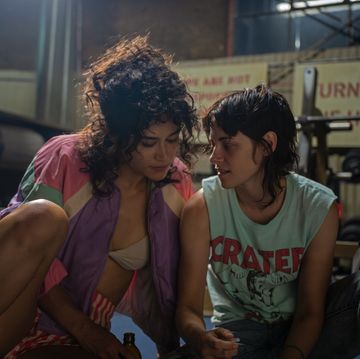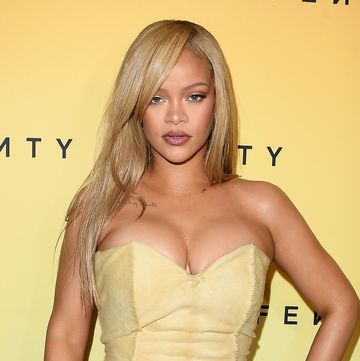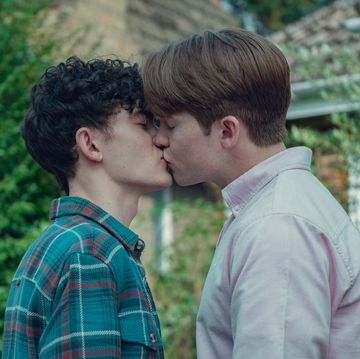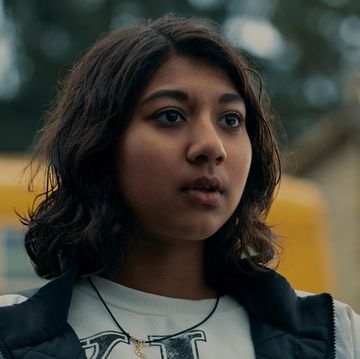You could divide Awkwafina’s life into two parts: now, and then. There was the time she rode in the back of an Uber with a chatty driver who seemed to recognize her. He was such a fan; his wife was a fan; his whole family—huge fans! Like Carrie Bradshaw, she couldn’t help but wonder: How had this nice old dude heard her viral, but by no means mainstream, YouTube hits “My Vag” (which is about exactly what you think) and “New York City Bitche$” (ditto)? Because, back in 2012, that was all one could possibly know of her. Maybe this guy was just a very early adopter. Or...maybe he had mistaken her for somebody else. At the end of the ride, he turned to her and said, “Wow, Zhang Ziyi, really great to meet you.”
Awkwafina, birthname Nora Lum, is many things: a rapper, a YouTube sensation, an author, and, yes, an actor. But she is most assuredly not Zhang Ziyi, star of Crouching Tiger, Hidden Dragon.
That was then; this is now. Awkwafina leads me into her swanky suite in West Hollywood’s Palihouse the day before the premiere of Crazy Rich Asians, in which she gives the kind of breakout comedic performance that will most definitely get her recognized—in the back of Ubers, in bodegas, practically anywhere—but as herself this time. Wearing a silk shirt and pant set in shades of eggplant emoji, mauve, and milk, she climbs into the director’s chair that's been brought to her room for our interview, and marvels at the set-up—cups of ice, Italian mineral water, a plush armchair for me—that has been perfectly laid out, as if by magic. “This was just a bed up here. They just made this for us,” she says in her instantly memorable rasp, pointing around the room. “I didn’t realize they spiffed it up like that.”
Now: She’s sipping on green juice (“It tastes like shit”) and using an actual night cream (“I was never luxurious enough to use, like, a cream for the nighttime, but it's lit, dude”). She’s been on billboards, and in red-carpet daisy chains with Sandra Bullock, Cate Blanchett, and Rihanna as one-eighth of June's all-female caper Ocean’s 8. Her grandmother thinks she’s taken over the internet: “She only looks up Awkwafina videos, and the algorithm keeps giving you what you look up. So she calls me and she's like, ‘Nora, you've taken over YouTube! Every single video is of you!’”
Nora Lum grew up in Forest Hills, Queens and eventually took up the nickname Awkwafina, partly as a lark, in her teens. (At first it was “Aquafina,” until someone told her she might get sued.) She began to record herself rapping into a boombox at 13, then started laying down tracks in GarageBand when she got her first MacBook at 17. By 19, she was releasing comedic rap riffs on YouTube, where she whipped up millions of views and a dedicated cabal of fans. Then came two seasons on the all-female MTV comedy series Girl Code, a bodega-set web talk show called Tawk, a travel guide titled Awkwafina’s NYC (sample chapter: “The ‘Mr. Wong Fu, I Don’t Think We’re in Kansas Anymore’ Tour of Flushing, Queens”), a handful of TV and movie roles, and two albums of what she calls “brash, feminist rap": 2014’s Yellow Ranger and this year’s richer, sleeker follow-up, In Fina We Trust.
But this summer, her biggest audience yet received an Awkwafina crash course, thanks to her role as incorrigible pickpocket Constance in Ocean’s 8, and now her take on Peik Lin Goh in Crazy Rich Asians, which opened at the top of the box office.
In Kevin Kwan’s novel, Peik Lin is a switched-on businesswoman with a penchant for Porsches and diamonds. In Awkwafina’s hands, she’s a gaudy guardian angel with the voice of a chainsmoking demon, stomping around on screen with the jittery enthusiasm of a toddler who has access to an offshore bank account. Her air of rich-person eccentricity is accentuated by Stella McCartney animal-print silk pajamas and a “lesbian-Ellen” pixie cut. (“I saw that blonde wig peeking out of a corner,” Awkwafina says, “and I thought, I know they’re gonna make me wear that.”)
Other characters are taken point for point from the novel. Movie Peik Lin, however, is altogether Awkwafina’s concoction. “There were no talks about what she would sound like, or what she would act like,” she says. “God bless [director Jon M. Chu]. He really trusted me. The cool thing about Peik Lin is that what you see was born in that scene. All we had was that blonde wig.”
So Peik Lin was built around the actress’s impeccable comic timing, frantic physical energy, and sniper-sure zingers. “She’s bawdy, brash, she's constantly screaming, she's freaking out,” says Awkwafina. And while she’s not the lead, she’s the film’s comic heart. When Chu cast her, there was absolutely no pressure at all. “He said it's either going to make the movie, or ruin the movie,” she recalls.
Whatever the opposite of “ruining the movie” is, Awkwafina did it. Take her exchanges with Goh family patriarch, Wye Mun, played by Ken Jeong. A dinner scene at the Gohs’ Versailles-inspired house, an instant audience favorite, features Jeong and Awkwafina volleying subversive one-liners; it was largely improvised. When Jeong, who earned the nickname Papafina, reads about her in the press, he likes to text her to say, “I’m so happy and proud of you.” He pounces on the chance to talk about his on-screen daughter, saying the pair share a natural comedic flow: “When I think of Nora, I don't qualify it, like, Oh, she's the funniest Asian-American millennial woman under 5’9”. I just think she’s one of the funniest comedic actors working today.”
On its face, Crazy Rich Asians is a glittering bauble like those hanging around its obscenely wealthy characters’ necks: flashy, fashionable, diverting. But it also carries the weight of something heavier, an idea that shouldn’t be novel but somehow still is treated as such: that Asian people have stories that are worth telling.
Fans are sharing emotional accounts of how finally seeing Asian characters—not just one in a minor role, or an Asian lead character played by a white person—as complicated, contextualized individuals on screen has soothed a hurt they didn’t even know was paining them. It's been 25 years—since 1993’s The Joy Luck Club—since there was a Hollywood movie with an all-Asian cast and an Asian-American lead. That means Awkwafina’s not just playing a part in a movie—she’s playing a part in movie history. In the weeks leading to the opening of Crazy Rich Asians, the pressure mounted: If the movie does well? Surprise! Turns out Asian stories can sell. If not—would Hollywood bid Asian stories zai jian for another 25 years?
Most of us can’t identify such a clearly catalyzing moment in our lives, an escalation so significant it might as well make a cartoon boi-oi-oing sound. Awkwafina can. Then: She was lying in bed, rapping in her bedroom about queefing and kombucha. Now: She’s part of a high-stakes bet on the future of Asian representation in Hollywood. Then: She was a girl in Queens, raised largely by her Chinese grandmother, with an experience of the world nestled somewhere in a continuum of familiar but never identical first- and second-generation immigrant experiences. Now: She’s one of the most visible avatars for all Asian people on screen, if only because there are so few at all.
“I've definitely become more cautious and a little bit more nervous and paranoid. I'm representing my community in a bigger way than I ever have,” says Awkwafina. “I started out representing weird Asian chicks that loved Belle and Sebastian, you know? But now there are young Asian girls that really look up to me, and I say that in the most non-cocky way ever. You have to represent them well, and in doing so you can't be controversial in a way that is ignorant. I'm so scared of saying the wrong thing, or having it be misinterpreted.”
Greater visibility equals greater responsibility. Her career might be ascendant at a time when, for the first time, Asian-American stars can be considered both viable and valuable. But it’s a double-edged thing. “No artist wants to be known as an ‘Asian American artist,’” she says. “They want to be known as an artist. I felt it wasn’t fair that because I was Asian-American, I had to represent Asian-Americans. It’s good for them when I’m good, but when I’m bad, then what happens? I’m only human.” (Since the movie’s debut, some viewers have criticized her character’s “AAVE schtick”; earlier this year, Awkwafina told Medium, "Cultural appropriation for me — it’s a very controversial subject, and especially one to talk about when you’re in the hip-hop industry when you’re not Black. What people have to understand is that hip-hop music is music spawned out of adversity, political adversity, and it’s political at its core.")
She’s accepted the mantle of representation; that’s the price of admission. “My dying words will be: ‘But I didn't want to represent them.’ But I still would have. That is the responsibility that comes when you put yourself out there. So the only thing that I can do is do it right.”
When Awkwafina was young, she watched the basketball-pup movie Air Bud and thought about how cool it would be to play the kid. But the more she fantasized about it, the more her reality chipped away at the fantasy: I can't play that kid, because then my dad would have to be Asian, and then my mom would have to be Asian, and my house doesn’t look like that house, so....
“When I was little, I was completely starved for idols,” she says. “so I had a dream of becoming something that didn't exist.” As was the case for so many Asian-Americans, one of the first performers that Awkwafina saw onscreen who looked like her was Margaret Cho. “But I never saw anyone else—it was really only her,” she says. “So I think that in carving out my place, a lot of it had to do with there being a lack. Seeing a ghost town helped me—because I was like, Well, it could exist.” Depending on how you look at it, she had nobody to emulate, or she didn’t have to emulate anybody.
The success of Crazy Rich Asians is a win for the Asian-American community—creators and viewers alike. But it’s also a personal achievement for Awkwafina. On the eve of Crazy Rich Asians’ premiere, she tweeted a couple of screenshots from her Notes app: “Awkwafina wasn’t supposed to exist, but somehow she does,” she wrote. “She was born for one reason only—to show every person out there, that it is possible.”
I ask Awkwafina about the tattoo of a trumpet on her right arm. (Yes, she's aware Lady Gaga has one too: "Let me prove, with date stamps, that I got this first.”) “It was the loudest instrument in band,” she tells me. “And it was one that no other Asian girl in my class picked. In terms of my voice, and how I sound walking into a crowded room—I’m a trumpet.”
Asians aren’t all the same. They’re not all Singaporean or Korean or Chinese; they’re not all crazy rich or in movies with Cate Blanchett; they’re not all from Chinatown or from Queens. Lord knows they're not all Zhang Ziyi. When I look in the mirror, Awkwafina’s not going to look back at me; she’s her own damn woman. “I made a conscious effort to bill myself as Awkwafina,” she says. “People advised me not to do that, but they're never gonna forget that stupid name, you know what I mean?”
Awkwafina will be Awkwafina, come-up or no—though she did recently try to channel her Crazy Rich Asians swag in real life. She bought a Gucci fanny pack, for one. But as for what’s next? Comedy Central picked up her autobiographical pilot; there's a movie she's co-starring in with BD Wong. Honestly, though, she's not totally sure. That, she says, is when her “hustler mentality kicks in,” and she goes back to the way she thought about the world way back then. “Like, should I still come home with the same Ikea lamp? You know what I mean?” I advocate for just a smallish graduation. Like, West Elm? “Oh, hell no,” she says, mock-scowling. “I just looked them up. $2,389 for a fucking sectional?”
Fashion credits, lead image: Jacket and Shorts, Victoria Beckham; Faux Fur, Elisabetta Franchi; Shoes, Stuart Weitzman; Ring, Harry Kotlar
Photographer: Shelby Goldstein
DP: Danny Dwyer
Stylist: Avo Yermagyan
Hair: John D at Forward Artists for TRESemmé
Makeup: Melanie Inglessis at Forward Artists
Shot at Palihouse West Hollywood
